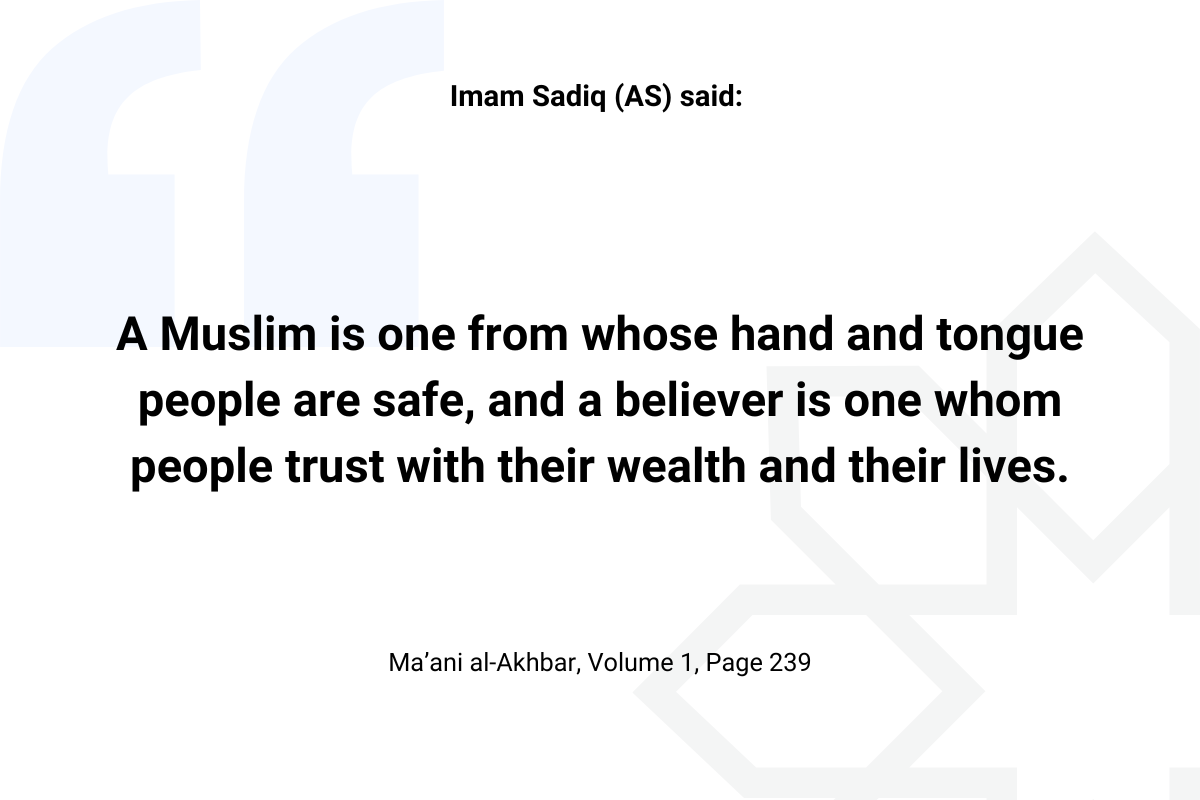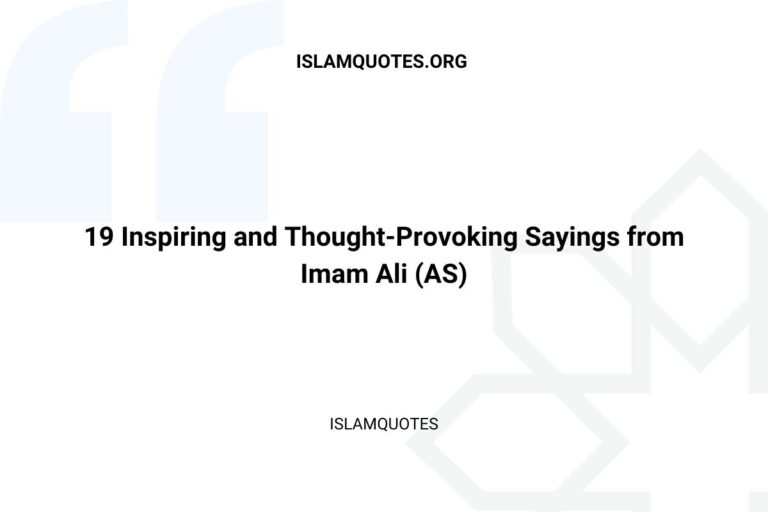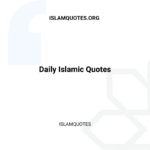Imam Sadiq (AS) said:
‘A Muslim is one from whose hand and tongue people are safe, and a believer is one whom people trust with their wealth and their lives.‘
– Ma’ani al-Akhbar, Volume 1, Page 239
The Characteristics of a True Muslim According to Imam Sadiq
Introduction
The profound wisdom of Imam Sadiq (AS), a prominent figure in Islamic tradition, emphasizes the ethical and moral responsibilities of a Muslim and a believer. This saying delineates the virtues of non-violence, trustworthiness, and integrity, which are crucial for fostering a harmonious and just society. Understanding and embodying these qualities can lead to a more peaceful coexistence and strengthen communal bonds.
The Safety of Hand and Tongue
Non-Violence and Compassion
Imam Sadiq (AS) underscores that a true Muslim ensures that their actions and words do not harm others. This aspect of non-violence is deeply rooted in Islamic teachings, promoting compassion, kindness, and empathy. The Quran repeatedly advocates for peace and non-aggression, encouraging Muslims to avoid physical and verbal harm to others. This principle is critical in maintaining social harmony and ensuring that communities thrive in mutual respect.
Guarding the Tongue
Verbal abuse, gossip, and slander can cause significant harm and discord. Islam places great emphasis on the ethical use of speech, urging Muslims to speak truthfully and kindly. The Prophet Muhammad (PBUH) stated, “Whoever believes in Allah and the Last Day should speak what is good or keep silent” (Sahih Bukhari). By controlling one’s tongue, a Muslim contributes to a respectful and supportive environment, reflecting the teachings of Imam Sadiq (AS).
Trustworthiness in Wealth and Life
Financial Integrity
Trustworthiness is a cornerstone of Islamic ethics, particularly concerning financial dealings. Imam Sadiq (AS) highlights that a believer is someone whom others can trust with their wealth. This principle ensures fair and honest transactions, which are vital for economic stability and social justice. The Quran and Hadith emphasize the importance of fulfilling trusts and being honest in trade, as seen in Surah An-Nisa (4:58).
Protecting Lives
Beyond financial trust, a believer is also responsible for the safety and well-being of others. This aspect of trust extends to protecting the lives and dignity of fellow human beings. The Quran states, “And do not kill the soul which Allah has forbidden, except by right” (Surah Al-Isra, 17:33). By safeguarding lives, believers uphold the sanctity of human life and foster a culture of mutual respect and protection.
Practical Applications of These Teachings
Building Trust in Communities
Implementing these teachings in daily life can significantly enhance trust and cooperation within communities. Muslims are encouraged to engage in acts of kindness, honesty, and integrity, thereby building a reputation of reliability and moral excellence. Such behavior not only strengthens individual character but also promotes societal well-being.
Promoting Peace and Justice
By ensuring that their actions and words do not harm others and by being trustworthy, Muslims can contribute to a just and peaceful society. These qualities are essential for resolving conflicts, fostering understanding, and promoting social cohesion. Imam Sadiq’s (AS) wisdom serves as a guiding light for Muslims striving to live righteously and uphold the principles of Islam.
Conclusion
Imam Sadiq’s (AS) teachings provide valuable insights into the ethical conduct expected of Muslims and believers. By ensuring that others are safe from our actions and words, and by being trustworthy, we can create a more harmonious and just society. These principles are not only fundamental to Islamic ethics but also universally relevant, promoting peace and integrity across all communities.
For more enlightening Islamic quotes, including daily Hadiths and profound sayings, visit our dedicated section on Islamic wisdom.








